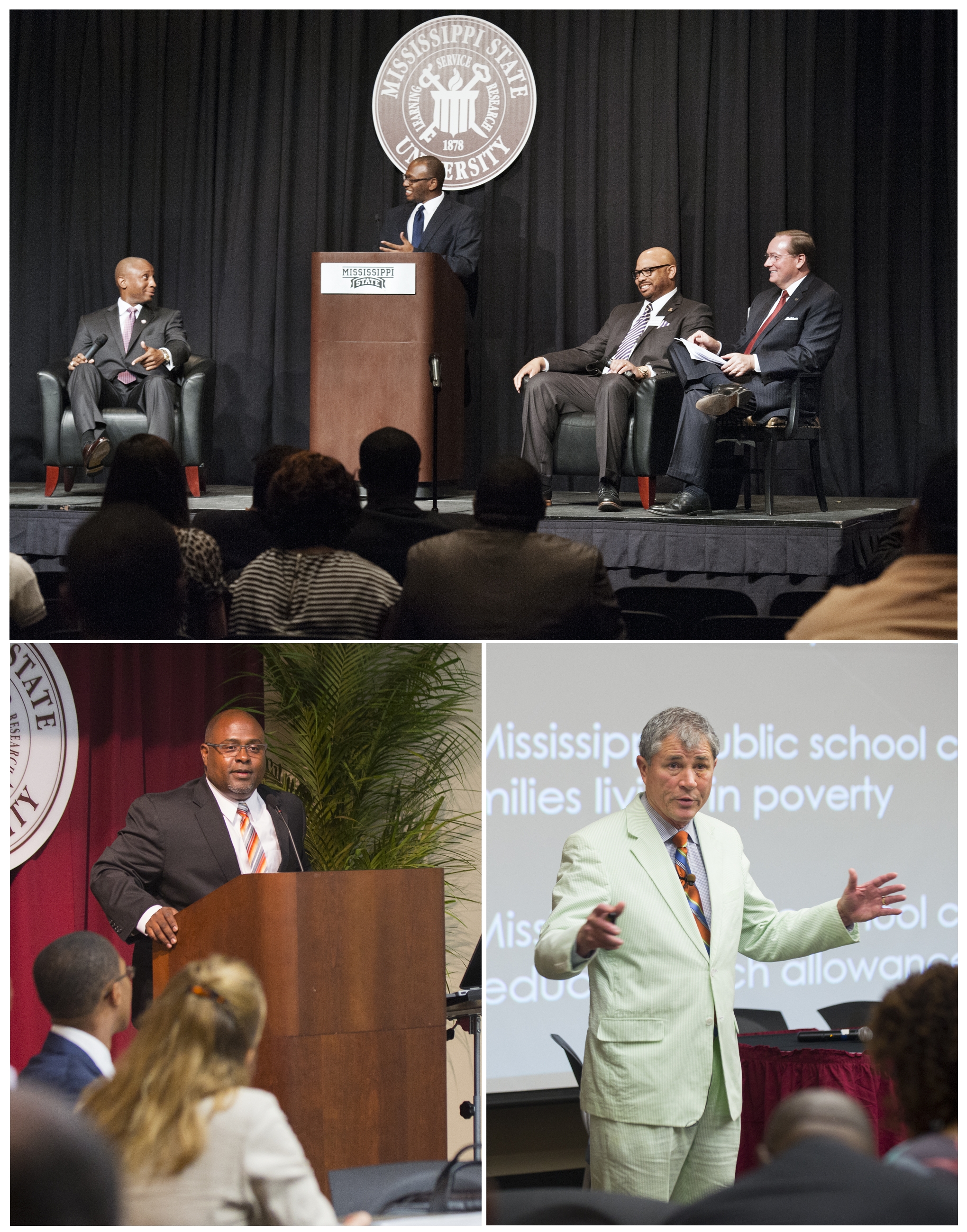Contact: Leah Barbour

BOTTOM: Joe Scantlebury, left, senior policy officer at the Bill and Melinda Gates Foundation, and Lewis Whitfield, senior vice president of Tupelo's CREATE Foundation, spoke at the K-12 Pathways Mini Summit on Thursday.
STARKVILLE, Miss.-- Industry leaders, educational professionals and university students discussed the academic challenges faced by young African-American men at Mississippi State University's third annual Men of Color Summit.
At "Global Competitiveness: Exploring Pathways Toward Academic Achievement," MSU administrators joined other officials to open the conversation about strengthening academic achievement among black men, from entering kindergarten prepared to graduating from an institution of higher learning.
At summit's first-ever K-12 Pathways Mini Summit on Thursday [Aug. 28], participants listened to Joe Scantlebury, senior policy officer for the Washington, D.C. office of the national Bill and Melinda Gates Foundation, and Lewis Whitfield, senior vice president of the Tupelo-based CREATE Foundation.
Featured speakers at the formal Friday [Aug. 29] program included MSU President Mark E. Keenum, Alcorn State University President Alfred Rankins Jr. and Coahoma Community College President Valmadge T. Towner.
Scantlebury emphasized that black males tend to drop out of school more than any other demographic group, while Whitfield explained the dropout rate's correlation to generational poverty. Both men said, though additional funding may help, the answer to filling this achievement gap is to offer individual African-American students support and assistance.
"We see education as a civil right, and we have the absolute belief that every single student can meet state standards," Scantlebury said. "You all know the problems, and now you know the data, so what's your resolve? In this state, we need everybody. In the United States, we need everybody."
Mentoring and taking active interest in individual students are critical to changing graduation dynamics among young men of color, Whitfield said. He also emphasized the importance of working together and learning both from successes and failures.
Friday's feature panel of college and university presidents, moderated by MSU Rhodes Scholar Donald "Field" Brown of Vicksburg, continued and expanded upon the themes explored Thursday.
Rankins said, "We need to expose young men of color to positive role models. You can look within your own communities and your own campuses for those role models for these young men to aspire to. They are there, and these young men need them."
Along with positive role models, young men of color should also seek to connect with people different from them, Keenum added. Because getting along with colleagues is one critical aspect of professional success, young men of color should take advantage of their opportunities to interact with a wide variety of people during postsecondary study.
Like Keenum and Rankins, Towner said students succeed when they go to class, and his community college, like MSU and ASU, features programs to encourage students to go to class before they are too far behind.
"I applaud Mississippi State for opening up the discussion about the issues facing men of color," Towner said. "We have to collectively decide on how can we come together and embrace the notion of educating everybody.
"At the end of the day, the entire state, the entire country and the entire world will benefit if all of us have education."
To learn more about the 2014 Men of Color Summit, join the conversation on Twitter at #msumoc14.
MSU is online at www.msstate.edu, facebook.com/msstate, instagram.com/msstate and twitter.com/msstate.